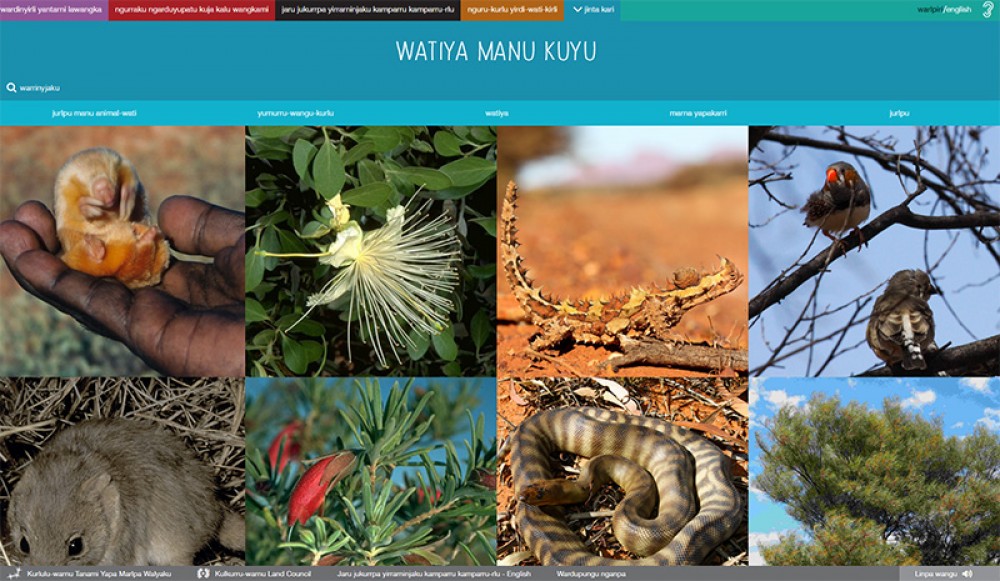
The management plan for the vast Southern Tanami Indigenous Protected Area (IPA) is no longer a closed book to the Aboriginal people responsible for looking after the vast and fragile country near the border of the Northern Territory and West Australia.
Frustrated with the wordy and complex IPA management plan, the Warlpiri speakers of the Tanami Desert have replaced it with an innovative and engaging digital storybook that puts them in charge by literally speaking their language.
The interactive web application at www.walyaku.org.au requires neither literacy nor English skills because it replaces the text with short videos, audio and animation in Warlpiri, allowing viewers to move through the management plan by following voice navigation prompts and icons.
“We searched the globe for something traditional owners could understand and own but we could not find anything remotely like it, so they came up with their own digital plan that’s exciting, entertaining and a world first,” says CLC director David Ross.
“The digital storybook overcomes the digital divide between our communities and mainstream Australia because it doesn’t even require an internet connection. Who said innovation and agility are only for cities?”
The product of more than two years of research, trial and error, the storybook can also be accessed through a desktop application in community learning centres and home computers, as well as through USB sticks for TVs and game consoles.
“And because so many locals were involved in filming, directing, editing, translating, designing and scripting the storybook it has built community pride and ownership before it’s even launched,” Mr Ross says.
The storybook’s creators will present it at the Natural Resource Management Conference in Darwin on 23 November, followed by launches in the remote communities of Yuendumu, Nyirrpi and Willowra from 28 November.
The CLC will evaluate the project to see if it inspires people in the Tanami, especially young people, to become more involved in ranger group activities such as seasonal burning, feral animal management and the protection of threatened species before rolling it out to other groups.
“Already, people in Lajamanu have put aside a quarter of a million dollars of their compensation money from the Granites Mine to create another digital storybook for the Northern Tanami IPA. We expect the idea will take off from here because it fulfills a real need,” says Mr Ross.
“We have dozens of jointly managed national parks in the NT alone, all of them with plans for ‘two-way management’ that most owners of these parks can’t understand.”
Traditional owners are also taking their innovation to the world, with indigenous land managers everywhere welcome to adapt a free digital storybook template to their needs.
The world’s largest gold miner, Newmont, co-funded the project because it recognised the global potential of the digital storybook.
“Traditional owners are already thinking of how their concept can be further developed and taken to the world,” says Mr Ross. “I hope the storybook will become a valuable tool for empowering indigenous people everywhere, no matter how remotely they live.”
